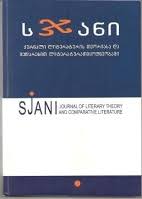Rustaveli – Nizami’s Contemporary: Revision of Some Poetical and Aesthetical Principles
Rustaveli – Nizami’s Contemporary: Revision of Some Poetical and Aesthetical Principles
Author(s): Irma Ratiani, Maka ElbakidzeSubject(s): Aesthetics, Middle Ages, Other Language Literature, Theory of Literature
Published by: ლიტერატურის ინსტიტუტის გამომცემლობა
Keywords: Poetical and Aesthetical Principles; Georgian National literature; Medieval period; Mijnuri motif;
Summary/Abstract: Formation of Georgian literature in early Middle Ages (5th century) is entirely connected with the Christian culture. It is a period, when Georgia with its literature joins the common European current of Christian literature. Nevertheless, Georgian literature, as well as the country itself, is located at the unique place of meeting the Western and the Eastern civilizations, and all kinds of “magic” is possible here! It is naïve to assert that Georgian literature equally shares the Eastern Asian and the Western European literary principles. It is favorable towards the first as well as the second literary model, but by its essence it is a Christian literature, from the very beginning oriented on the Western canon and inwardly constantly looking to the East. Its closeness to the Eastern literary tastes at various times and periods was caused by external factors: a) the geographical location; b) historical events (political and economic requirements); c) literary tendencies which affected the Western literary world.
Journal: სჯანი
- Issue Year: 2019
- Issue No: 20/2
- Page Range: 14-19
- Page Count: 6
- Language: English

